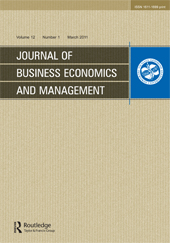International Outsourcing: Empirical Evidence from the Netherlands
International Outsourcing: Empirical Evidence from the Netherlands
Author(s): Süleyman Tuluğ OkSubject(s): Economy
Published by: Vilnius Gediminas Technical University
Keywords: domestic outsourcing; international outsourcing; production outsourcing; incomplete contracts; innovation; internal knowledge; external knowledge; empirical research; Netherlands
Summary/Abstract: This study examines the results of a field survey on international outsourcing conducted in 2009 in the Netherlands. The research sample is composed of 156 Dutch enterprises from various industries. Empirical evidence shows that reduction of labor costs, improved competitiveness, strategic decisions taken by the group head and reduction in other costs are the main motivations for Dutch firms to engage in international outsourcing. Tax and regulatory advantages seem to play a lesser role. The motivations can be grouped into three distinct factors: access to cheaper resources and increasing competition, access to scarce and distinctive resources and reduction of other production costs. The most important impediments turn out to be problems with distance to producers, the need for proximity to existing clients, concerns about the outsourcing operation exceeding expected benefits and linguistic/cultural barriers. Violation of patents/intellectual property rights and uncertainty of international standards are not viewed as important issues. The impediments are captured by three different dimensions as indicated by the data: legal and governmental obstacles, human concerns and logistical difficulties.
Journal: Journal of Business Economics and Management
- Issue Year: 2011
- Issue No: 1
- Page Range: 131-143
- Page Count: 13
- Language: English

